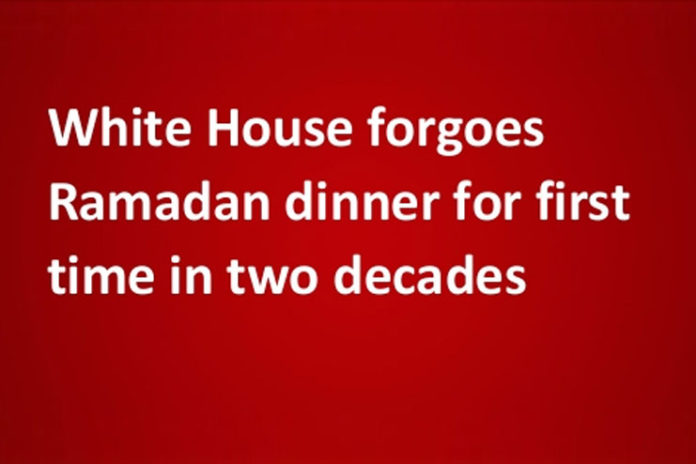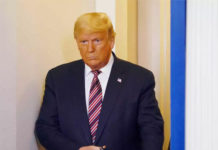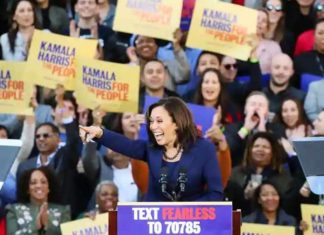While in India, the President of India probably hosting the last Iftar in the Rashtrapathi Bhavan, for the first time in nearly two decades, Ramadan has come and gone without the White House recognizing it with an iftar or Eid celebration. Several former White House staff members said that they would usually begin planning an iftar “months in advance” and didn’t anticipate the Trump White House could pull something off before the end of Ramadan.
Opponents of H-1B visa to demonstrate on Modi visit
Late Saturday afternoon, the White House has released a short statement from the President Trump and the first lady recognizing the holiday.
“Muslims in the United States joined those around the world during the holy month of Ramadan to focus on acts of faith and charity,” the statement read. “Now, as they commemorate Eid with family and friends, they carry on the tradition of helping neighbors and breaking bread with people from all walks of life. During this holiday, we are reminded of the importance of mercy, compassion and goodwill. With Muslims around the world, the United States renews our commitment to honor these values. Eid Mubarak.”
“This holiday marks the culmination of Ramadan, a month in which many experience meaning and inspiration in acts of fasting, prayer, and charity,” Secretary of State Rex Tillerson said in the statement. “This day offers an opportunity to reflect on our shared commitment to building peaceful and prosperous communities. Eid Mubarak.”
Indian American girl winner of Illinois 10th annual Discovery Education 3M Young Scientist Challenge
Rumana Ahmed, who has helped to plan several White House iftar dinners and one Eid celebration during the Obama administration, said that it was unfortunate that the tradition could end with Trump. For all of the events she helped coordinate, the focus has changed slightly each year: from honoring Muslim American youth to recognizing the economic contributions of the community, for example. But the overarching message of each White House Ramadan event was always one of inclusion and respect, Ahmed said.
“If you look at when it started and how it’s evolved, in a way it’s kind of been in response to conversations happening on a national level and in our society,” Ahmed said.
By Premji













































